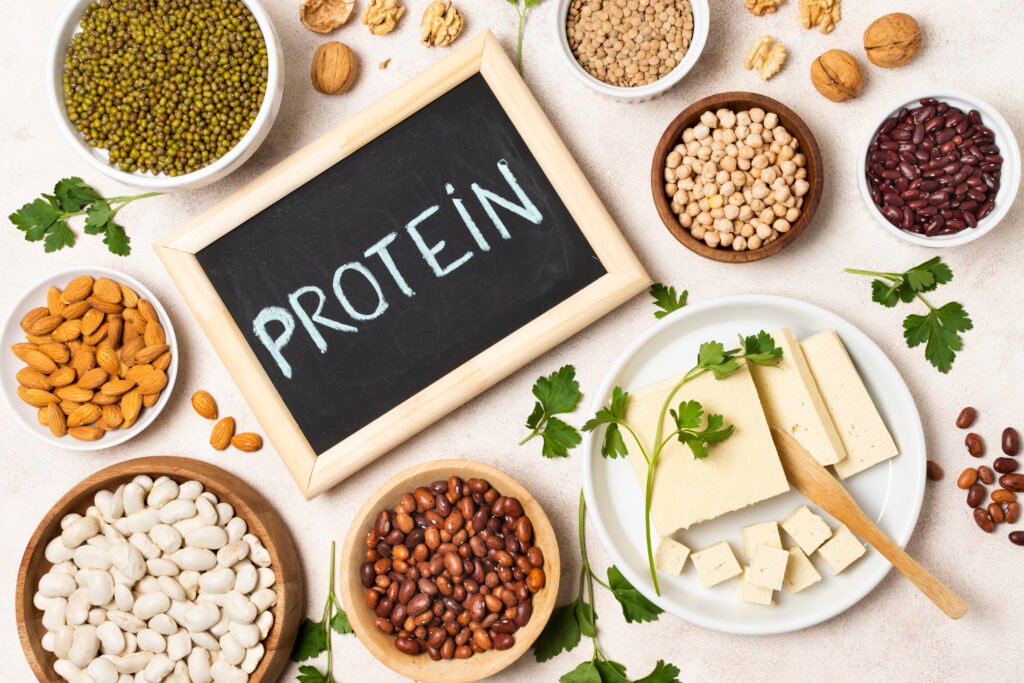In the world of nutrition protein often stands out as an element. It is praised for being the foundation of life necessary, for repairing muscles promoting growth and maintaining well being.. How protein should one really include in their daily diet? Lets explore this nutrient and uncover the truth about its importance.

Understanding Protein:
Protein consists of amino acids, known as the “building blocks” of protein. These amino acids play roles in bodily functions such as tissue repair, immune support and the production of enzymes and hormones. While some amino acids can be produced by the body itself there are nine acids that must be obtained through dietary sources.
The Significance of Protein:
Protein is not about building muscle mass: it is crucial for sustaining life itself. A sufficient intake of protein supports tissue growth and repair which’s essential for maintaining skin, hair and nails. Moreover protein plays a role, in boosting the system to help fight off infections and diseases.
Protein and Muscle Development:
For individuals involved in activities or strength training exercises protein plays a particularly important role. During exercise sessions muscles undergo stress and damage leading to muscle protein synthesis (MPS) a process that aids in muscle repair and growth.
Getting protein after working out is, for repairing and building muscles, which in turn helps with muscle growth and strength.
Figuring Out Your Protein Requirements:
So how protein do you actually need? The amount varies depending on factors like age, weight, how active you are and your overall health. As a rule of thumb the Recommended Dietary Allowance (RDA) suggests 0.8 grams of protein per kilogram of body weight per day for adults. However this may not be enough for everyone especially if you’re physically active or aiming to increase muscle mass.
Read Also: Exploring the Power of Functional Foods: Enhance Your Health Naturally
Factors that Impact Protein Needs:
- Activity Level: People who regularly exercise, with strength training might need protein to support muscle recovery and growth.
- Age: Older adults may require higher protein intake to combat age related muscle loss. Maintain muscle mass.
- Health Status: Those recovering from illness or injury may need protein to aid in healing and recovery.
Maintaining a Balanced Protein Intake:
While protein is important it’s crucial to find a balance, in your diet. Consuming amounts of protein can strain the kidneys. Potentially lead to other health issues.
Be sure to incorporate a mix of protein sources into your meals, such, as meats, fish, eggs, dairy, legumes, nuts and seeds. Choosing plant based proteins can provide fiber and antioxidants.
Tips for Getting Enough Protein:
Distribute Protein Intake: Try to have some protein at each meal and snack to help your muscles consistently build protein.
Choose Good Quality: Go for proteins that’re low in saturated fat and additives.
Timing Matters; Eating protein rich foods after working out can help with muscle recovery and growth.
In Summary:
Protein is crucial for health. While everyone’s needs differ, getting enough protein is vital, for muscle mass, immunity support and overall well being. By understanding your protein requirements and making food choices you can boost your health for the long run.


